Currently, much of the information about Canadian performing arts sector entities (including performers, directors, designers, choreographers, organizations, venues and events) is not properly formatted to be found, read and processed by search engines and other discovery technologies. As a result, it is too often ignored or underutilized.
The Linked Digital Future Initiative (LDFI) was created to make performing arts-related information findable and to help build better connections in our sector – between arts workers and audiences – in the digital age. One of the ways this has been achieved is by converting already publicly available information into reusable and accessible data in open databases, such as Wikidata and the Artsdata knowledge graph.
Although LDFI is leading this work, it will take many leaders in Canada’s performing arts sector contributing information to turn this vision into reality.
Why Membership-Based Arts Organizations?
As the holders of information about various entities in the performing arts sector, Membership-Based Arts Organizations (sometimes also called arts service organizations or industry associations) have a pivotal role to play in the data-centric performing arts sector.
By collaborating with the LDFI and working directly with their members to encourage proper formatting and linking of their data, such organizations can directly contribute to increasing the discoverability of the performing arts online.
Since 2021, the LDFI has reached out to 21 arts service organizations in various ways to tell them about the LDFI and to work with them to achieve the benefits of opening up performing arts-related data.
Over the course of this work, we enjoyed many successes but also encountered many challenges.
The Challenges
Many of the organizations we contacted recognized the benefits of opening data. However, there continued to be many challenges faced by Membership-Based Arts Organizations when it came to the actual tasks of opening up data.
A significant challenge was the lack of staffing resources available to collaborate on opening membership data and secure buy-in from membership, while also maintaining a consistent liaison with the LDFI to facilitate data uploads. The COVID-19 pandemic stretched arts organization resources to unprecedented levels. With survival being a main focus, the process of opening data, although key to building sector sustainability, could not be prioritized by many Membership-Based Arts Organizations – at least not to the extent that we had originally anticipated. In the midst of maintaining operations, some of these organizations also took on unanticipated roles as distributors of COVID-19 support funding, which placed additional pressure on already limited staffing resources.
Data quality and exhaustivity were also challenges. Sometimes Membership-Based Arts Organizations had either outdated data or else data that they didn’t deem reliable. Other times, too many member records were incomplete. Some other times, critical identifying and descriptive information was just not collected at all. For example, a Membership-Based Arts Organization may have just a name and an email address entered in their database for a specific member (e.g. John Smith john.smith@whateverdomain.com). Without additional data fields such as gender, work location, website, field of work or social media handles, we don’t know enough about John Smith to determine if other database records by the same name are indeed about the same person (we call this process “disambiguation”). This kind of ambiguous data record doesn’t have much potential for discoverability and reuse. No matter whether or not you disclose it in Wikidata, it’s going to be ignored by search engines.
The Successes
Despite the challenges faced, the LDFI team overcame several obstacles and enjoyed many successes through its work with Membership-Based Arts Organizations.
In the absence of explicit disambiguating information such as the work location or occupation of an artist, we relied on information that was implicit to the dataset. For example, we knew for certain that all Union des Artistes members had a work location in Canada, that all Indigenous Performing Arts Alliance members could be considered to have “artist” as an occupation, and that all venues in the Scène Pro database were some sort of “performance halls”. These data points were perhaps not as granular as we had hoped, but they were accurate and they filled critical information gaps.
We also managed to map many data structures with matching classifications in Wikidata. Among other things, we mapped 76 occupations in the Union des Artistes taxonomy with Wikidata classes.
With the Indigenous Performing Arts Alliance (IPAA), the association wanted a policy framework that matched the values of the organization. We accompanied the IPAA in the design and release of its Data Sovereignty Strategy. This strategy is based on Indigenous principles for data collection, management and use. It emphasizes the opportunity for IPAA members to exercise ownership and control over what information and data circulates about them in the web of open data. IPAA also implemented changes to their membership form to collect additional information it deemed important about Indigenous artists.
Together with Regroupement québécois de la danse (RQD), we managed to upload 542 individual and organizational members to Wikidata.
The RQD has embarked on the “A Linked Digital Initiative” project with enthusiasm! By participating in the uploading of the data of the members of the RQD directory in Wikidata, the Regroupement québécois de la danse (RQD) believes in the constitution of a knowledge graph for the performing arts and more specifically for dance. We believe in the theory of small steps! We strongly believe that it will contribute to increase the visibility of dance, and more specifically of our members, on the web.
Aurélie Lauret, Regroupement québécois de la danse (RQD)
The LDFI plans to continue the collaboration with Regroupement québécois de la danse by hosting a series of workshops this fall to teach artists how to enrich and maintain their open data. A similar data enrichment activity was recently held with members of Orchestras Canada and it resulted in 123 edits.
The LDFI also worked with the Siminovitch Prize and Governor General’s Award for the Performing Arts to open data about their recipients and laureates, thereby increasing online discoverability about the award programs and celebrated artists.
Our colleagues at Culture Creates have also developed a new widget that generates lists of all the datasets published as open data to Wikidata as part of the Linked Digital Future Initiative.
Recognizing the staff limitations faced by Membership-Based Arts Organizations, the LDFI created a series of blogs and online workshops to help guide arts organizations and individual members on how to open their own data. These include:
- Wikidata tutorials
- 5 Steps to Improve Your Digital Presence
- Wikimedia Commons: a discoverability opportunity for the performing arts
Finally, the LDFI’s outreach to various Membership-Based Arts Organizations has also prompted important conversations on the need for data quality and how it can be collected.
Keeping Up the Good Work
To support art service organizations in this data collection, the LDFI has created an outreach toolkit. It includes guidance on communicating with members to obtain consent to open data, as well as a detailed lists of the types of data that art service organizations can collect from their members to improve data quality and to enrich online profiles and discoverability. Work is also underway to finalize a data model for arts organizations, along with controlled vocabularies defining standard lists for types of organizations.
Long after the Linked Digital Future Initiative wraps up, its goals of creating a linked open data ecosystem for the performing arts can live on through the work of Member-Based Arts Organizations who embrace opening their data to support sector discoverability.
Resources
- Outreach Toolkit and Consent Guideline for Membership Based Arts Organizations (First released: September 2022, updated: January 2024)
- Recommended Data Points for Individuals and Organizations
- Recommended Bridge Identifiers (First released: February 2022, updated: May 2023)
- Sample consultations report outlining the different steps for liberating member information as open data (courtesy of the Canadian Dance Assembly)
- Catalog of datasets uploaded to Wikidata
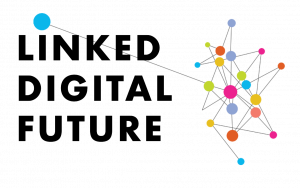
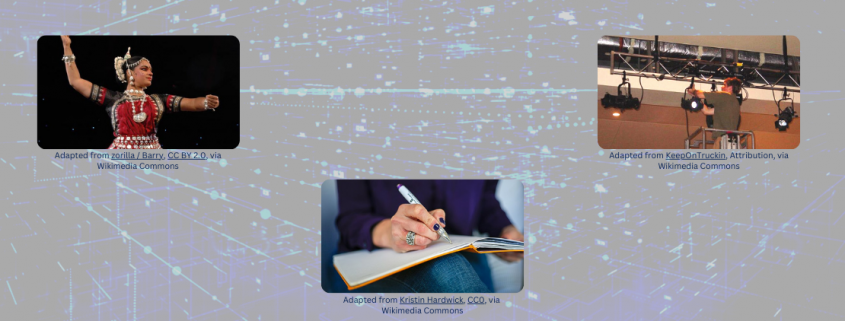
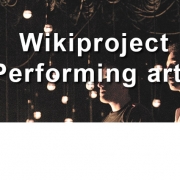
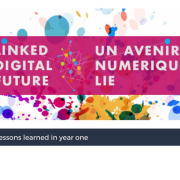

 CC BY 4.0
CC BY 4.0 
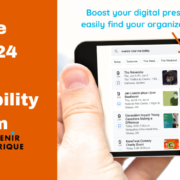
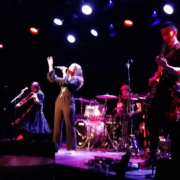
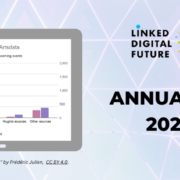




 CC BY-SA 4.0
CC BY-SA 4.0
Leave a Reply
Want to join the discussion?Feel free to contribute!